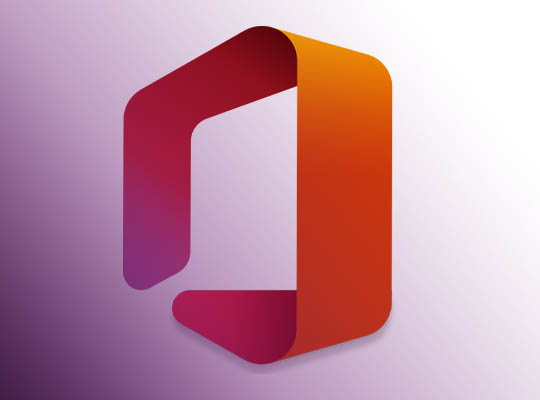If there is one thing your organisation should be concerned about, it’s the threat of a cyber-attack. Even the most common cyber attacks can happen across all business sectors and are becoming increasingly more sophisticated as time passes. The severity of even the most common cyber attacks varies as they are not universally identifiable or identical as well as being able to mutate into new and unidentifiable forms, so with that in mind, it’s imperative that your sensitive business data is kept secure.
This can be done by increasing awareness throughout your business including educating your employees and making sure that your IT Infrastructure is up to date, so the risk of a cyber-attack occurrence can be mitigated. Below we discuss the most common cyber attacks and their impact on your business.
What is the impact of the most common cyber-attacks on businesses?
A lack of focus on cyber security within your organisation can be greatly damaging as the most common cyber attacks can heavily effect your business. Aside from the direct financial losses, there is also a physical and reputational impact such as trade disruption, legal implications (including GDPR) and or having to repair essential IT systems, such as servers, to consider when a cyber-attack occurs.
Aside from the direct implications, the failure to protect your customer or employee’s information can result in personal compliance breaches including the General Data Protection Regulation or GDPR. This is regardless of whether the negligence originates from the management or employees of a business. Under GDPR, the penalties for non-compliance will be subject to either a fine of 2% of the businesses turnover or €10 million – whichever is greater or, for a more severe data breach, up to 4% of a businesses turnover or €20 million; whichever is greater.
Ransomware and Malware cyber attacks
Malware is one of the most common cyber attacks that can target your businesses. In its purest form, Malware is a link or item that may appear to an end-user as a seemingly innocent email attachment or pop-up on the screen. These are designed to mislead users into the item is legitimate and once clicked on, cyber criminals are often then able to access your organisation’s network to either seize sensitive business data or even damage the network itself. Malware infiltration within businesses is not new but remains a prolific way for cyber criminals to quickly gain access to business IT systems.
Ransomware is another popular form of cyber-attack and has some cross-over characteristics with Malware. Ransomware is a form of malicious software which is unknowingly downloaded on a computer by a user, again these can come from email attachments and or a legitimate-looking webpage. Once downloaded, the software will block access to the computer rendering the system unusable until a ransom is paid.
Should your business be targeted by Malware or Ransomware, we recommend that you do not perform any actions that they specify as there is no guarantee of retrieving your lost business data. Instead, a specialist IT Security Consultant can assist.
Sophos is one of the most trusted names in IT Security software. Sophos Intercept X is an Endpoint Protection piece of software that prevents the malicious software from entering your organisation’s network.
DDoS Attacks
A Distributed Denial of Service (DDoS) attack is primarily targeted towards all kinds of business but e-commerce businesses are most at risk. DDoS attacks involves the use of botnets or other tools to flood your organisation’s servers with so much website traffic that they can no longer cope, resulting in the website crashing under the strain of traffic. Following a successful DDoS attack, your customers will be unable to access the affected websites until the issue has been resolved. This can cause your business to have a considerable amount of downtime depending on the severity of the attack.
How to prevent your business from DDoS attacks
Microsoft Azure provides DDoS protection as standard by having always-on monitoring and automatic network attack mitigation and adaptive tuning based on platform insights in Azure while the integration with Azure Monitor provides real-time analytics and insights.
Mobile Device Management
Even the most common cyber-attacks can be performed on insecure devices that connect to your business network. By implementing Mobile Device Management (MDM), a piece of software that allows IT administrators to control, secure and enforce policies on smartphones, tablets and other endpoints, this enables your business to control the core component of Enterprise Mobility Management. This also includes mobile application management, identity and access management and enterprise file sync and share. The core intention of an MDM policy is to optimise the functionality and security of mobile devices within the business while simultaneously protecting the corporate network.
By using the latest business applications such as Microsoft 365, which is unified Cloud solution that comprises of Microsoft Office 365, Enterprise Mobility Suite and the Windows 10 operating system. It is possible to manage both Microsoft Office 365 and Enterprise Mobility + Security (EM+S) users settings and preferences from one central portal. The portal can be accessed from anywhere on any device making the management quick and easy. With Microsoft 365, it is continually kept up to date with the latest features and security updates which gives businesses peace of mind that their IT Infrastructure is kept secure while helping to facilitate Digital Transformation, ISO 27001 and GDPR Compliance. Microsoft have also just released their Microsoft Defender ATP for Android, with IOs capabilities to follow, this service keeps mobile devices safe from malware, ransomware and phishing attacks.
Ensuring cyber security is a large consideration within your IT Strategy
The most effective way of ensuring your organisation has a proactive approach to the most common cyber attacks is mitigating the risks and by adopting a cyber security strategy. This will consist of a set of best practices that covers every eventuality and is distributed to every employee throughout your organisation. Adopting and implementing a cyber security strategy will raise awareness of the importance of potential issues that arise and makes it clear to each individual what their role is in the event of a cyber-attack.
Minimising security risks
For these processes to be beneficial, each one needs to be specifically tailored to your business sector and future business plans. Using an IT strategy that is made for your competitor will not yield positive results, instead businesses need to think about their own needs and how their employees work. For example, do they have employees who work remotely and how can they minimise the security risks associated with working via the Cloud?
Implementing IT Security frameworks
Implementing a cyber security framework such as Cyber Essentials, which is backed and recognised by the UK Government, can help organisations to adhere to a series of cyber security principles to safeguard their business data, client’s data and participate in high value tenders that require this certification. An audit by an IT Consultant explores the known vulnerabilities in internet connected servers and devices throughout your business, prior to the certification submission and weaknesses are identified.
The importance of Disaster Recovery Planning
In the event of a disaster such as Malware, flood or fire and if a business does not have robust IT disaster recovery plan in place they face downtime, potential data breaches and a loss of revenue. When designing a Disaster Recovery Plan, it should represent all areas within your businesses’ IT setup including applications networks, server and data storage.
There are many types of business data back-up available such as Cloud or Hybrid. An IT Consultant would recommend these over an on-premise server offer as they offer added security benefits and the multiple authentication layers and replication methods. This gives you peace of mind that your business data is safe, compliant and protected whilst also ensuring it can be immediately restored in the event of any disaster.
Infinity Group are Cyber Security Consultants who specialise in IT Security, IT Strategy, Disaster Recovery Planning and Mobile Device Management. If you are looking to improve your cyber security setup, please get in touch.
Speak to us
Our specialist team of Consultants look forward to discussing your requirements in more detail.
Telephone: 03303 333 648
Livechat now: Click below button
Request a call back
[contact-form-7 id=”6″ title=”Contact form” html_class=”contact_form_box”]
Latest posts
BT Sets date to swit…
Read More
No Comments

December 20, 2015
Spear Phishing Email…
Read More
No Comments

December 27, 2015
Employees working re…
Read More
No Comments

February 13, 2016

